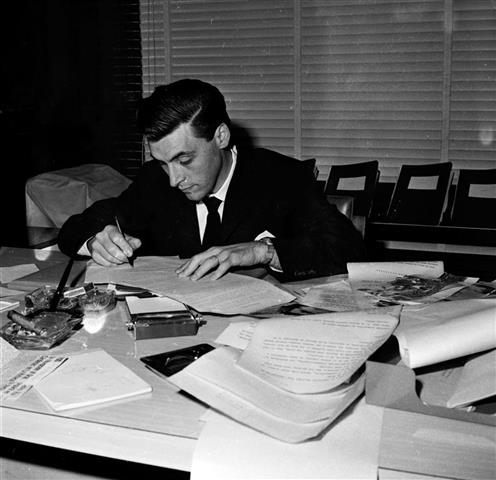Nearly six decades have passed since Comandante Segundo (Commander Second) arrived in the jungle of Oran, in Salta, in northern Argentina, along with other comrades, on April 21, 1964. The whereabouts of his body is still a mystery, but the imprint of his work remains alive in the press professionals who succeeded him.
Masetti’s relationship with Cuba, where he contributed to the creation of Prensa Latina in conjunction with another great Argentinean, Ernesto Che Guevara, began before the triumph of the Revolution on January 1, 1959.
In 1958, as a reporter from Radio El Mundo, he was sent to Cuba to interview his compatriot and the historic leader of the Revolution, Fidel Castro, who were making history in the Sierra Maestra Mountain Range, where they were fighting the Fulgencio Batista dictatorship.
The following year, as a result of Operacion Verdad (Operation Truth), promoted in Cuba to counter a strong international media campaign, the creation of an alternative and Latin American news agency marked the beginning of a long path in defense of the excluded, and Masetti’s return to Cuba to lead the new media entity.
Leading a group of reporters who would become great figures of Latin American journalism, such as Colombia’s Gabriel Garcia Marquez, Masetti commanded the beginning of the news agency, established on June 16, 1959, to counteract the big monopolies that misrepresented the national and world realities.
“We are objective, but not impartial. We believe that it is cowardly to be impartial, because you cannot be impartial between good and evil.” That phrase coined by Masetti and inherited by the generations of journalists that came after him is still very valid.
At these times of infodemic and fake news, it would be useful to wonder how Masetti would view Latin America today, when the big media monopolies and social networks are often platforms for disinformation. Many of the people who knew him stress that the man, who was born on May 31, 1929, in Avellaneda, in the south of Buenos Aires province, was a journalist of his time, a revolutionary, a militant, who defended his ideas and the fight for a world with social justice.
“That his name remains as unknown in his country as the plot of land in the jungle that hides his bones was predictable for Masetti. As a journalist, he knew how big names are built and oblivion is woven,” as another great pen from his Argentina referred to him, his friend Rodolfo Walsh.
jg/mem/gas/may









